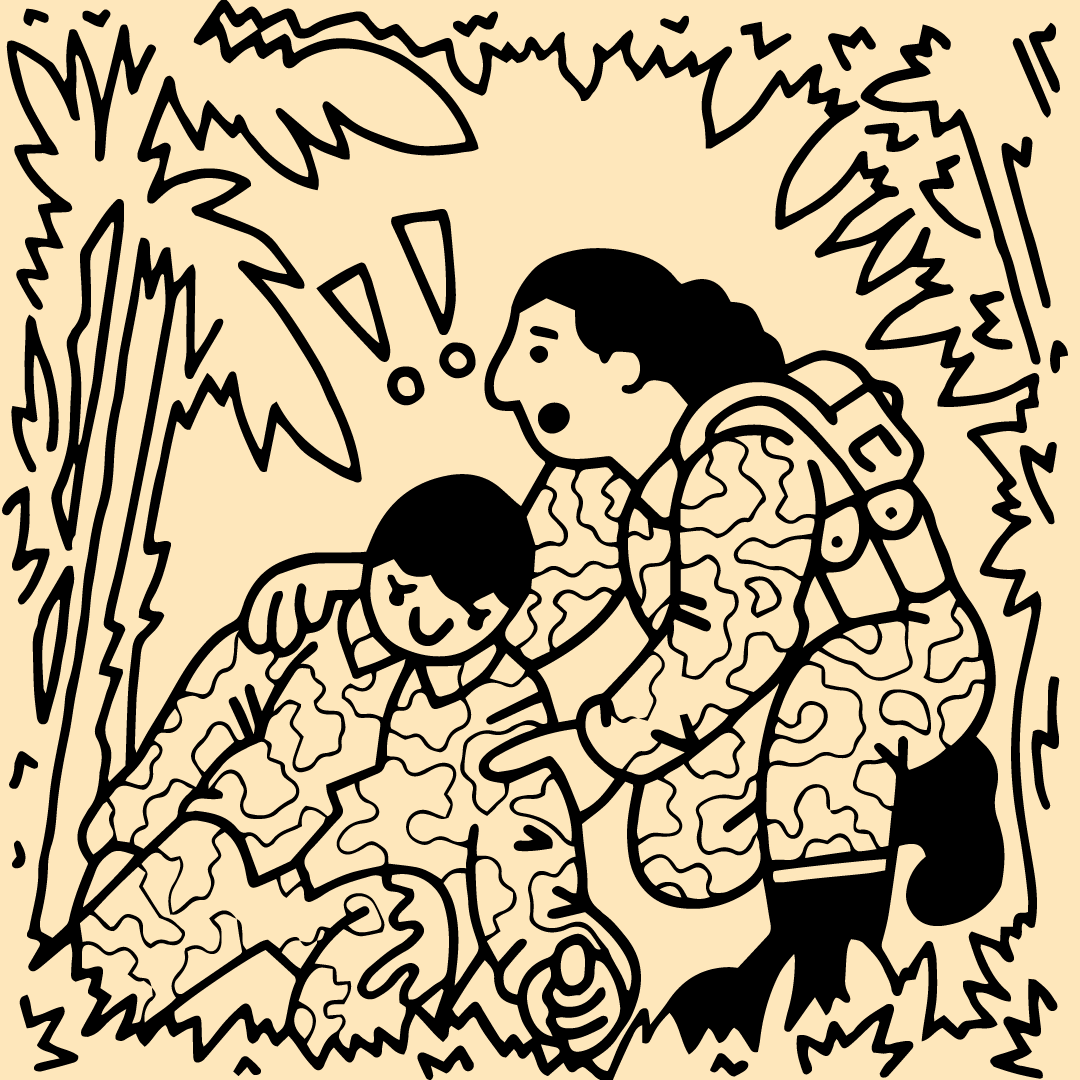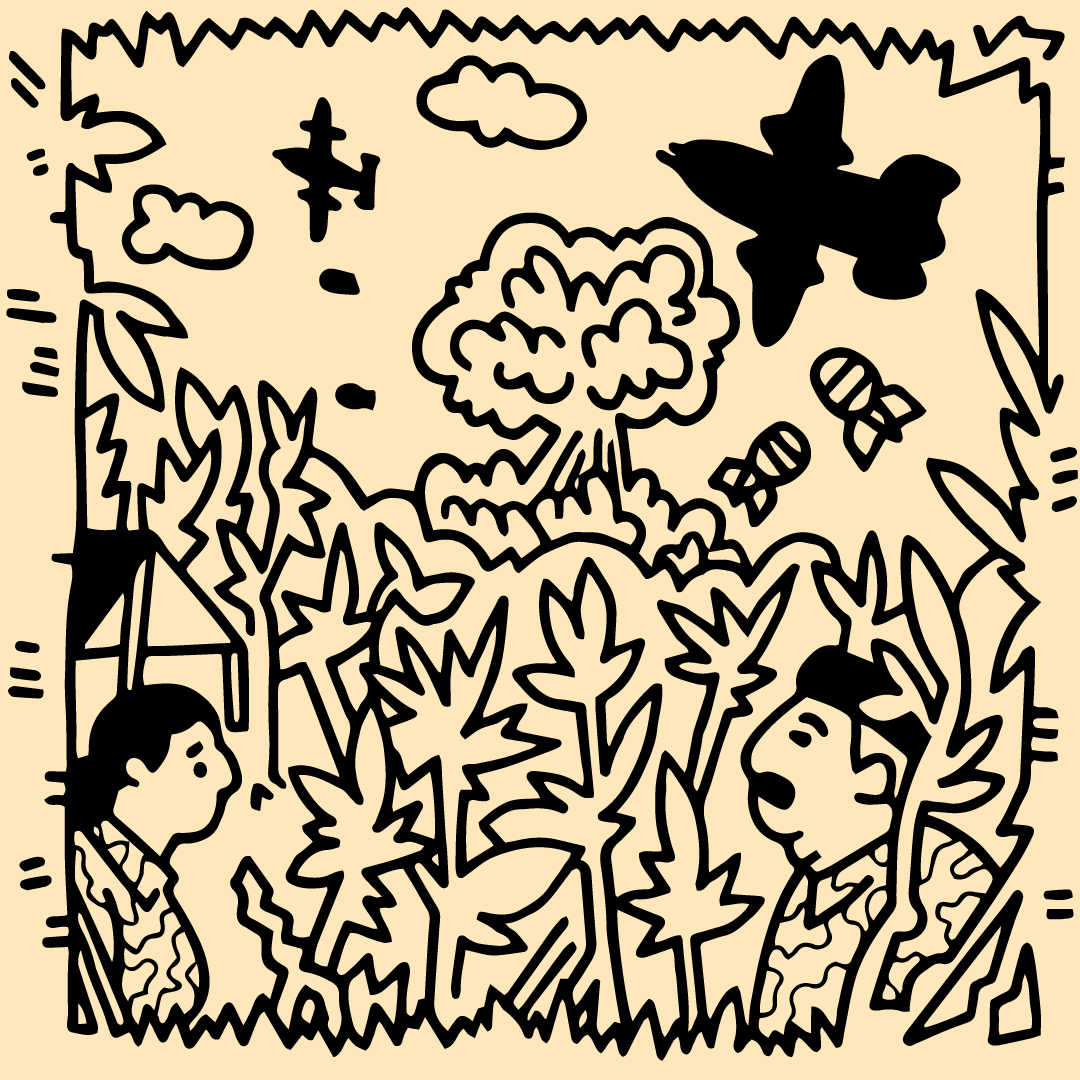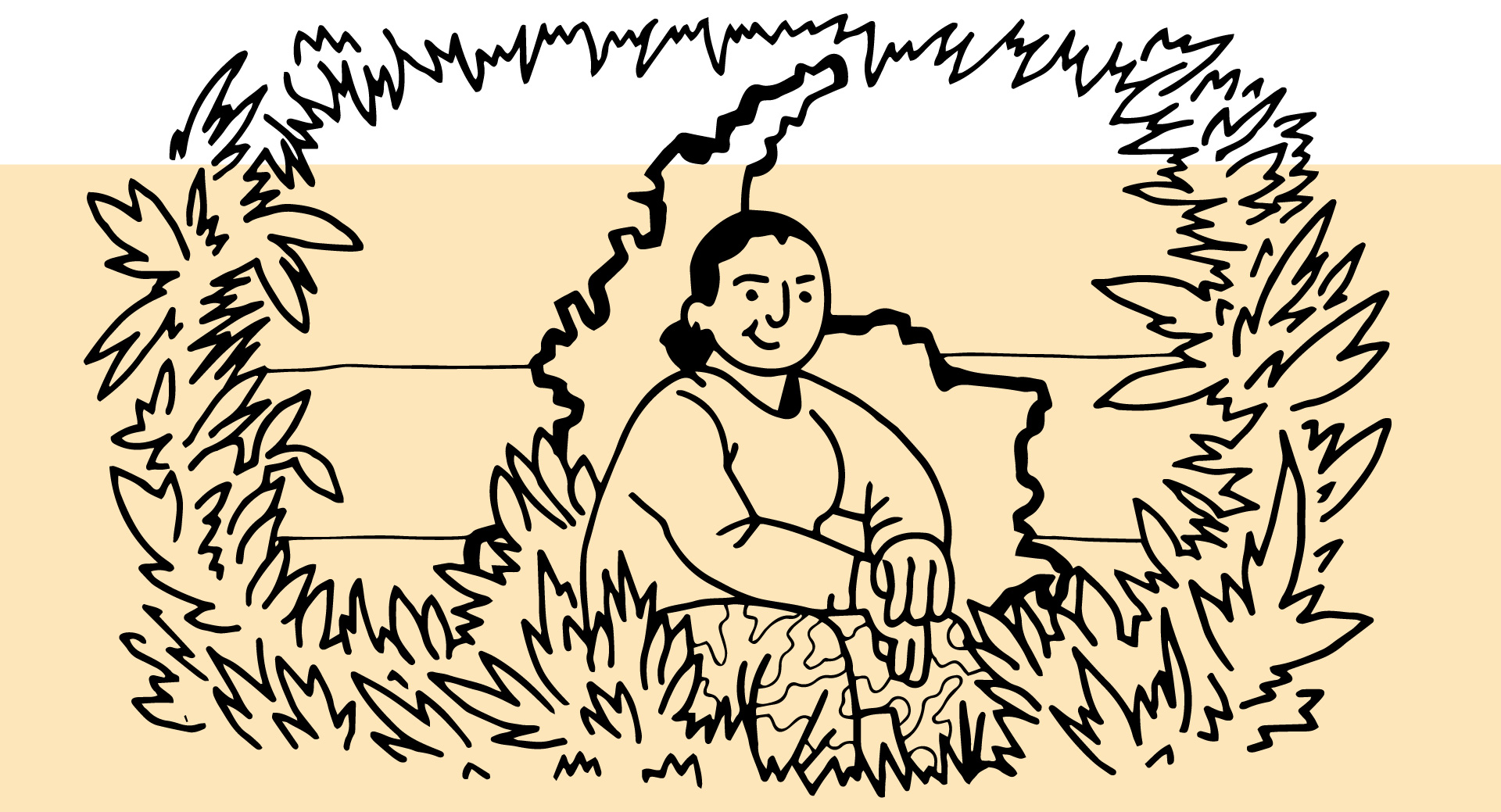ENG – ESP

Las Fuerzas Armadas Revolucionarias de Colombia (FARC-EP) protagonizaron una insurgencia armada de décadas, luchando por la justicia social. Alejandra Téllez, originaria del Putumayo, fue desplazada por el conflicto y a temprana edad se sumó a la guerrilla. Estuvo en los Bloques Sur, Oriental y Magdalena Medio, llegando a ser parte de la guardia de Manuel Marulanda y más tarde de Timoleón Jiménez (Timochenko). En esta entrega de Flashbacks, la guerrillera cuenta para Utopix varios episodios de su vida en las FARC, desde su primera experiencia en combate hasta los bombardeos que victimaron a Mono Jojoy.
In the FARC, one had to show one belonged. Especially as a woman, one arrived to show that, because there were capable women aplenty. I arrived at the Southern Bolc and saw several of them, including one, Yolima, whom they called Chipe. A lot of experienced ones, very able on the battlefield. I used to tell myself “I want to be like them.”
My first three years were spent in what is known as “The Trench.” This was our primary school. There were some 20 of us aged from 10 to 15. Out of those there are 3 or 4 of us left. From the Trench we would go back and forth to the demilitarized zone, right on the edge of the Amazon jungle, but our task was to sing. That’s when I met comrade Manuel (Marulanda). I have photos from that, when I met the old man…
It was in 2002 when we got sent to the first battle. One made up all sorts of fantasies, and when going out to fight one dreamt of becoming famous. But that wasn’t easy, to reach fame amidst so many women. As it turned out, we went to fight around El Doncello, Caquetá department. A whole skirmish broke out and the army was chasing the women. They wanted to catch them and we all knew what could happen after that.
We had to run for it that day. Everyone scattered. So much so that the commandos dispersed and those who didn’t follow got detached and stayed behind. I found Camilo Vargas lying down with a hurt knee. I had no idea where to go and told him:
—Camilo, how are you going to stay here on your own? I will take you with me, I can’t leave you…
—No, Alejita, go. Go or else they will kill you.
—No, Camilo, you’re coming with me. And if they kill they will kill us both, but I’m not going to leave you here stranded.

It wasn’t solidarity as much as being completely lost. I had no idea where the fuck to turn to. The only one who had his bearings was Camilo. If I went on my own, chances are I’d get lost and end up in the army camp. On the other hand, with this man, helping him, he told me where to go and I didn’t get lost.
So I returned triumphant and everyone said: “Wow Alejita! Alejita did not leave the wounded behind!” What they did not know is that I did not bring him out of solidarity, nor because I was all that brave, but mostly because I had no idea where I was. Out of fear that the army would catch me, more than bravery and solidarity. Not just that, I was around 16 at the time.
It was 2002 and Uribe was campaigning. I think the soldiers there wanted to create a security buffer so Uribe could come to Doncello. This was one of the stories where I began to prove my worth. A victory built out of pure fear.

Then came the Patriotic Plan in 2004. We suffered deaths like a bitch. It was another level, another type of conflict. It was going out with five and two of us coming back. And not knowing how we made it.
In 2005 I ended up in the Eastern Bloc. That was yet another stage of the conflict: bombings and landings. The army would bomb, disembark a mile away, and charge. Then bomb and land right there. They bombed once a week. Then once every day. Later it could be 10 or 12 bombardments a day.
Sometimes they would trap us, block the entire mountain range and there was no way to get food in. But we had hidden stashes with a lot of beans, pasta, sugar and salt. The meat we could get nearby from peasants. With that we got by. What we couldn’t get at times was coffee so we would scorch sugar and pretend it was coffee. We made a hearty stew by toasting pasta, cooking the beans, mixing everything together, throwing in dried meat and stirring until it was solid. We could eat that in the afternoon, a little pasta soup for breakfast with a cup of the burnt sugar “coffee.”

On July 20, 2010, the army launched a bombing at 7 am that lasted until 3 pm over a more or less wide sector. One of the bombs was a hair’s breadth away from falling in the middle of our camp.
That day began with the AT-37 planes. Then came the Sukhois. Then the Kfirs. The Kfirs finished their round and there was another batch of AT-37s. They stopped at 3 and at 9 in the evening the bombings started again.
That night we had to leave the encampment. The thing is, Mono (Jojoy) had left us behind as punishment. Everyone moved from the camp except us, because in the previous bombing we took a detour during the retreat and ended up really far away, with another FARC front, the 40th, there in the mountain chain. That detour caused the death of three commanding officers. So Mono placed us inside a security ring because we did not follow orders and did not go where we were told.
—We have to leave them here so they don’t get lost. Until I give the order, no one leaves.
So they left us there at the camp. The whole day and half the night under bombing.
After that there were more bombings in different sectors. They placed a lot of trackers to spot us, in the food or the medicines. So when we got shipments, the mules would leave the food in a given place. We would go there, load up, inspect what we were bringing and take it to another spot, a kind of commissary about a kilometer away from camp. Another group would then come, inspect the stuff again and take it to camp.

We started to set up decoys. The first days the army fell for them. But eventually they realized it and started bombing us more often again. Closer and closer every time. We were in a place called La Bamba. One day we got a plant that looked like it had a tracker. So Mono said:
—I’m going, but the dentistry (that we had in the Eastern Bloc) is going to continue operating.
Since there were few bombings during the day, we had the appointments, and then everyone went to sleep elsewhere during the night.
That same night the Kfirs arrived and bombed La Bamba. The next day, Santos said Mono was in that camp but had escaped mere hours before. Mono was already quite sick at the time. I remember he told us:
—I will only get mail, nothing else. I’m going to hide for a few days.
That mountain chain had planes bombing it every single day. There was a plane with like a cap on top, to detect communications. It was followed by “the mosquito,” as we used to call it, since it sounded like a mosquito in our ears. That one was to detect movements. After that one left, in came the hog, that’s what we called the one that fired on us. A big, green plane. It was like this every day, living under that tension…
On March 27 they killed comrades Acacio, Comején and Carreta. On July 20 the bombings lasted all day. In August, this journalist Botero came to interview Mono, who was still in hiding and hosted very few people in his location. Finally, on September 22 they killed Monito. For Monito to fall like that it took two years of siege. Two years of planes and bombs.


Flashbacks is a Utopix project that reconstructs testimonies from people who were not necessarily protagonists but witnessed events amidst major historical transformations. The tales take us back to different times and places, but they all offer a view from below and up close of episodes of struggle that forged history.
Story: Alejandra Téllez. Editing: Ricardo Vaz. Illustrations: shenby g.
